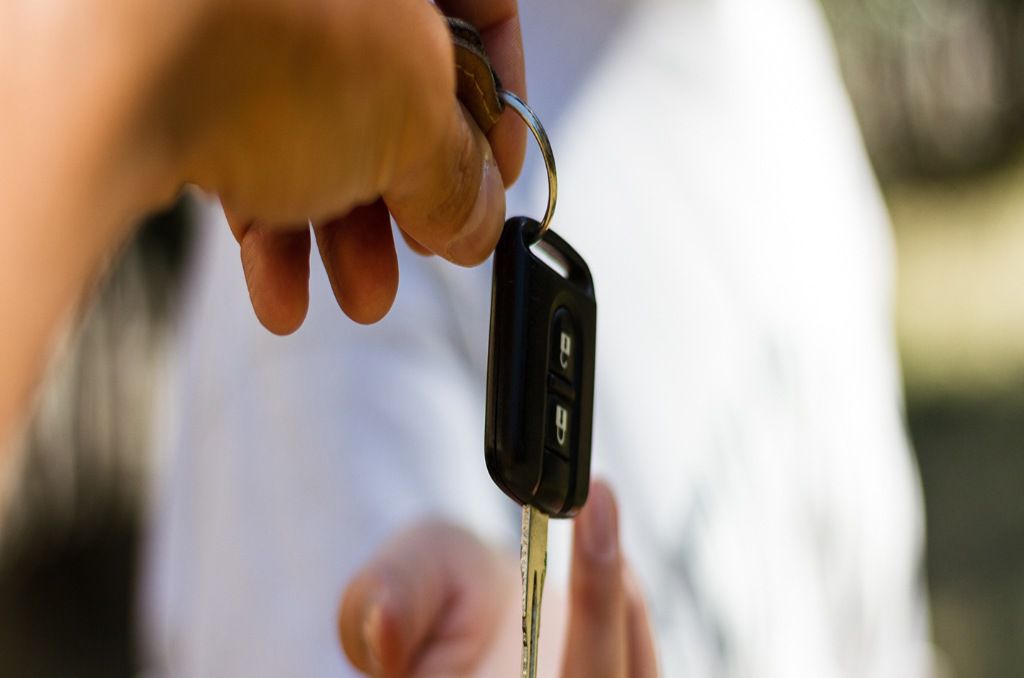Apple CarPlay lets us connect our iPhones to our car’s screen, either with a cable or wirelessly in newer models. Wired CarPlay uses a Lightning-to-USB cable, giving us a rock-solid connection, plus it charges our phones. Wireless CarPlay uses Bluetooth and Wi-Fi instead, freeing us from cables.
We’ve tried both setups in our cars, and they each offer unique benefits. The wired setup in our SUV provides consistent performance and keeps our phones charged during drives. In our other car with wireless, we love just hopping in and having everything connect automatically for a seamless experience.
Which way to go in our next car? We’ll show you which driving styles make one option better suited than the other and share our real-world tips for optimizing both systems.
Ever wonder why some people prefer wireless, and others choose cables? The reasons might surprise you and help you determine the best setup for your daily drive.
Key Takeaways
- Connection Reliability: Wired CarPlay offers a stable connection with minimal latency, which is ideal for uninterrupted navigation and superior sound quality. In contrast, wireless CarPlay can experience occasional dropouts and delays due to its dependence on Bluetooth and Wi-Fi.
- Audio Quality: Wired CarPlay supports lossless audio, delivering high-fidelity sound ideal for audiophiles, whereas wireless CarPlay may sacrifice some audio quality for convenience.
- Charging Capability: Wired connections allow for simultaneous charging of your device, preventing battery depletion during long journeys, while wireless connections may lead to increased battery drain over time.
- Convenience and Clutter: Wireless CarPlay provides a clutter-free experience, allowing easy phone placement and seamless connectivity without cables. This makes it particularly appealing for users who prioritize convenience.
CarPlay Wired vs Wireless
Drivers must understand the key differences between wired and wireless CarPlay. Wired CarPlay connects via USB, ensuring a reliable connection with minimal latency. This means we experience less audio delay compared to using a wireless setup. The wired connection also supports lossless audio, a big plus for those who prioritize sound quality in their car audio system.
On the other hand, wireless CarPlay offers unmatched convenience, allowing us to connect without cables. By enabling a wireless connection through Bluetooth and Wi-Fi, we can enjoy our favorite apps and music seamlessly.
However, many may encounter drawbacks such as slightly reduced audio quality and increased phone battery drain. A wireless CarPlay adapter can be an option for those considering aftermarket solutions, but we must ensure our vehicles’ compatibility.
Our choice between wired or wireless CarPlay ultimately depends on what we value more—reliability and superior audio quality from wired CarPlay or the convenience of wireless options that make it easier to stay connected while driving. Each has its own advantages and disadvantages that influence the overall driving experience.
Features of CarPlay
Apple CarPlay offers innovative features that cater to the modern driver’s needs. It seamlessly integrates our iPhones with the vehicle’s infotainment system, enhancing our driving experience with safe access to apps, music, and more. Below, we explore the distinct features of both wired and wireless connections.
Wireless Connection
The Wireless CarPlay head unit offers incredible convenience. It uses Bluetooth and Wi-Fi technology to connect our iPhones without cables. This wireless connection allows us to use CarPlay without the clutter of a cable, making it easier to access navigation apps and play music.
However, using wireless may reduce audio quality and increase battery drain compared to wired options. Despite these potential drawbacks, many car owners appreciate the freedom and ease of using wireless CarPlay for a more versatile driving experience.
Wired Connection
Wired CarPlay ensures a reliable connection using a USB cable, which minimizes latency and supports lossless audio. This feature is ideal for audiophiles who appreciate high audio quality when playing music or navigating their favorite apps.
Additionally, wired CarPlay can charge our devices while in use, maximizing our phone’s battery life without the hassle of disconnections. Wired CarPlay stands out for its speed and superior sound quality.
Experts’ Top Pick (Wireless + Wired) CarPlay Screen
After several months of using the CarPlay screens, here’s our review of this device that promises to bring wireless CarPlay capabilities to older vehicles with only wired connections.
Transform your drive with premium dual-mode CarPlay screens from GetCarTablet. Seamlessly switch between wireless and wired connectivity for the ultimate in-car experience.

The CarTablet Pro Max is a compact adapter designed to convert your car’s wired Apple CarPlay connection to wireless. It connects to your vehicle’s USB port and creates a wireless bridge to your iPhone, eliminating the need to plug in your phone every time you enter your car
What We Liked
- Transforms wired CarPlay to wireless with zero hassle
- Connects automatically when you enter your car
- All CarPlay features work perfectly (maps, music, calls)
- Super easy setup – just plug in and pair once
Buy If
- Your car only has wired CarPlay, but you want wireless
- You’re tired of plugging/unplugging on every drive
- You value convenience and are willing to pay for quality
Wireless vs. Wired CarPlay: Advantages Comparison
Feature | Wireless CarPlay | Wired CarPlay |
Connection Method | Bluetooth and Wi-Fi | USB cable |
Convenience | No cables needed; clutter-free experience | Simple plug-and-play setup |
Setup Process | Initial Bluetooth pairing required | Instant connection when plugged in |
Mobility | Freedom to place phone anywhere in vehicle | Limited by cable length |
Battery Impact | Drains phone battery faster | Charges phone while in use |
Audio Quality | Slightly lower quality due to compression | Superior sound quality; supports lossless audio |
Connection Stability | Occasional dropouts or delays possible | Highly reliable and stable connection |
Best For | Short trips; Those who prioritize convenience | Long journeys; Audiophiles; Battery-conscious users |
Vehicle Compatibility | Limited to newer models and aftermarket systems | Widely available in most CarPlay-enabled vehicles |
Multitasking | Easy to use phone for other tasks when stationary | Phone must remain connected to cable |
Performance Comparison
Various factors, such as stability, speed, and responsiveness, must be considered when evaluating the performance of wired vs. wireless CarPlay.
1. Stability and Reliability
Wired CarPlay offers a secure USB cable connection that drastically reduces the risk of audio dropouts and connection issues. This wired connection ensures we can seamlessly enjoy our music and navigation without interruptions.
In contrast, wireless CarPlay relies on Bluetooth and Wi-Fi technology, which can occasionally experience instability depending on our vehicle’s environment and phone compatibility. Many car owners may find this inconsistency frustrating if they rely heavily on their infotainment systems for directions or playlists.
2. Speed and Responsiveness
In terms of speed, wired CarPlay provides immediate access to apps, making it highly responsive. This is especially beneficial for users who appreciate the superior sound quality of lossless audio. Wireless CarPlay, while convenient, can exhibit slight delays in data transmission, resulting in a less responsive experience than its wired counterpart.
This difference can impact tasks like using navigation apps, where real-time updates are crucial for our driving experience. We may find that wired CarPlay delivers a more efficient and reliable performance than wireless options, enhancing our overall satisfaction while using CarPlay.
User Experience
When using Apple CarPlay, user experience varies significantly between wired and wireless options. Each method has unique strengths and weaknesses, shaping how we interact with our infotainment systems.
Ease of Use with Wireless CarPlay
In contrast, wireless CarPlay excels in convenience. By enabling Bluetooth and Wi-Fi, we can use CarPlay wirelessly, freeing our phone from physical connections. This adaptability allows us to place our phones conveniently and keeps our car interior clutter-free.
setup might require some initial configuration to enable wireless CarPlay, the benefits of a tangle-free experience and the ability to stay connected hassle-free are appealing.
However, relying on Bluetooth and Wi-Fi can lead to potential audio delay and battery drain, which might remind us of the trade-offs between wired and wireless CarPlay.
Ease of Use with Wired CarPlay
Wired CarPlay offers a straightforward setup process. Using a cable, we can connect our iPhone to the car’s USB port and quickly access our apps without enabling Bluetooth.
This direct wired connection ensures stable performance and superior sound quality, making it the go-to choice for audiophiles who appreciate lossless audio. However, plugging in each time may feel cumbersome, especially for those frequently commuting or making quick stops.

Conclusion
Choosing between wired and wireless CarPlay from GetCarTablet ultimately depends on our preferences and driving habits. Wired CarPlay offers a reliable connection and superior sound quality while ensuring our devices stay charged. It’s perfect for those who prioritize audio performance and simplicity.
On the other hand, wireless CarPlay provides unmatched convenience by eliminating cables and allowing us to move freely within the vehicle. While it may have some drawbacks, like increased battery drain and potential audio delays, the ease of access to navigation and music apps is hard to ignore.
By weighing the benefits and limitations of each option, we can find the best fit for our driving experience, ensuring that our time on the road is both enjoyable and efficient.
Frequently Asked Questions
What is Apple CarPlay?
Apple CarPlay is an innovative integration system that connects iPhones to vehicle infotainment systems, allowing users to access apps, navigation, and media directly from their car’s display.
What is the difference between wired and wireless CarPlay?
Wired CarPlay connects via USB, providing a stable connection and faster charging, while wireless CarPlay uses Bluetooth and Wi-Fi, offering more convenience without cables but may lower audio quality and increase battery drain.





